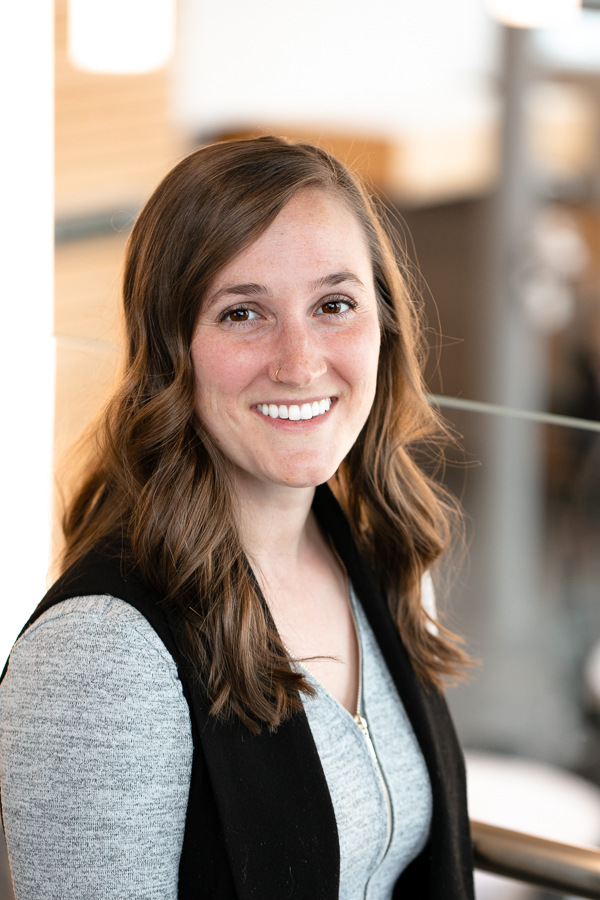THURSDAY, FEBRUARY 06, 2020 | by Sarah Ackles
Meredith DeCock-Caspell, a master of Sustainability student at Brock University, was one of only three graduate students across Canada chosen to present at a national conference this week.
DeCock-Caspell participated in the Student Delegate Program as part of the MSA Research and Catastrophe Indices and Quantification Inc. (CatIQ) Connect 2020 conference. The three-day conference, which took place in Toronto from Feb. 3 to 5, brought together industry, academia and government to discuss Canadian natural and human-made catastrophes. The conference is focused on catastrophe management and fostering collaboration before, during and after catastrophic events.
She said being selected as a student delegate for CatIQ Connect 2020 was a momentous moment in her studies.
“This opportunity means a great deal to me,” she said. “Not only do I get to share my research and that of my team with a broad national audience, but it is an incredible networking opportunity.”
Her research analyses how the Town of Lincoln’s shoreline has changed over time and the role that climatic factors and human activities have played in its evolution. This is part of a larger project that is working directly with the community to co-construct adaptation strategies and understand the barriers stopping those communities from acting on climate change.
DeCock-Caspell is utilizing a combination of historical air photographs, climatic and non-climatic data and land-based photographs submitted from the community to tell the story of shoreline evolution in Lincoln. The photograph comparisons will later be integrated with the coastline analysis maps in an online, accessible web application that will be shared with the public. The technique she is utilizing can also be generalized to other communities interested in disaster risk reduction and adaptation to the increased exposure to natural hazards brought about by climate change.
“Being selected to speak about my research at an event such as this affirms that what I am doing matters, not only to the residents of the community I am working with, but to all Canadians,” DeCock-Caspell said.
Story from The Brock News













